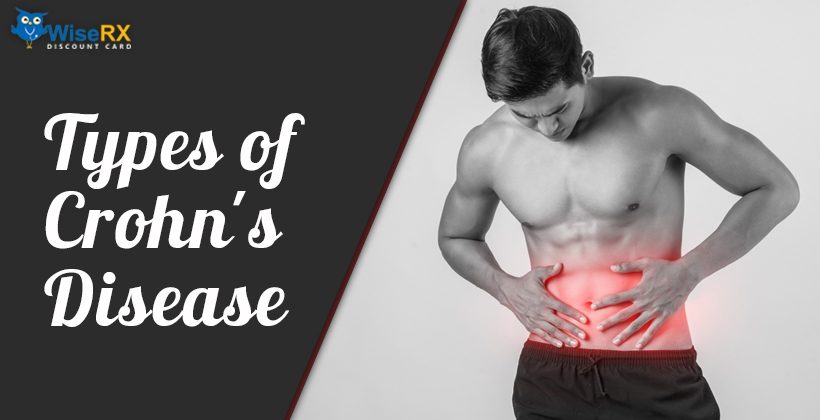
5 Types of Crohn’s Disease
Crohn’s disease is the disease type that causes erosion and chronic inflammation of the bowel or intestines. There are five different kinds of diseases, and each of them affects the different parts of the digestive tract.
There is no known cause of Crohn’s disease. According to the experts, it may happen due to the immune system’s reaction to food or bacteria in the bowel lining. It is thought to cause uncontrolled inflammation with Crohn’s disease.
The treatment depends on the severity and type of the disease. Each of the five types of Crohn’s disease has an association with its symptoms and specific regions of the digestive tract:
- Crohn’s colitis
- Jejunoileitis
- Gastroduodenal Crohn’s disease
- Ileitis
- Ileocolitis
Sometimes people may experience more than one type of Crohn’s disease simultaneously. It means several parts of the digestive tract may get affected at once.
Five types of Crohn’s disease
Crohn’s (Granulomatous) Colitis
It is the type of Crohn’s disease that affects the colon, known as the main part of the large intestine. It can cause abscesses, ulcers, and fistulas to form around the anus. It can also cause symptoms which include:
- Rectal bleeding
- Diarrhea
- Joint pain
- Skin lesions
Jejunoileitis
Jejunoileitis occurs in the jejunum or the second part of the small intestine, where it causes areas of inflammation. People with jejunoileitis may experience the symptoms:
- Abdominal discomfort, which can sometimes be severe
- Diarrhea
- Fistulas
- Cramps after meals
Gastroduodenal Crohn’s Disease
Gastroduodenal Crohn’s disease affects the duodenum and stomach. As a result, people with Crohn’s disease often experience weight loss, lack of appetite, and nausea.
People with gastroduodenal Crohn’s disease may also vomit in case of blockage in the small parts of the bowel. The reason could be because of intestinal inflammation.
Ileitis
Like ileocolitis, ileitis leads to irritation and inflammation of the ileum. The symptoms of ileitis are the same as those of ileocolitis. In addition, people with ileitis may develop fistulas which are inflammatory abscesses in the lower-right section of the abdomen.
Ileocolitis
Many people with Crohn’s disease suffer from ileocolitis. It is a form of Crohn’s disease which causes irritation and inflammation of the ileum (the lower part of the small intestine) and colon. Those with ileocolitis may experience symptoms such as:
- Pain or cramping in the middle or lower-right region of the abdomen
- Significant weight loss
- Diarrhea
Manage Crohn’s disease
People who have Crohn’s disease do not experience symptoms all the time. Instead, they may experience a time where the disease is active and leads to severe symptoms mixed with times where there are no symptoms.
Several treatment strategies can help manage your Crohn’s.
Medication
When your Crohn’s disease is active, your doctor will try their best to help soothe the symptoms and stop inflammation. They may also address any nutritional deficiencies which happen due to poor digestion.
Surgery
Sometimes, Crohn’s disease develops complications like hemorrhages, intestinal obstruction, abscesses, and fistulas. In addition, when medication is not effective, you may require surgery to remove the diseased part of the bowel.
Lifestyle changes
Even when your Crohn’s disease is in a period of remission, it is crucial to know how you can manage it to avoid severe flare-ups and prevent lasting damage to your digestive tract.
A healthy lifestyle can protect you from all the potential diseases. Make sure you eat a balanced diet, do not smoke, and get enough exercise. When your Crohn’s disease is active, avoid any known and common Crohn’s flare-up triggers like high-fiber and spicy foods.
Conclusion
It is not always easy to live with the discomfort and pain that Crohn’s disease causes. However, it is possible to lead a happy, healthy, and active life, even with this condition. Besides, listening to your doctor and staying healthy is the one good thing you can do to minimize the Crohn’s effect. Apart from that, support and educational groups for Crohn’s disease may help you better understand how to manage your condition.
If you are on medications for Crohn’s disease and need a discount on prescription medications, download Free prescription drug discount card.


